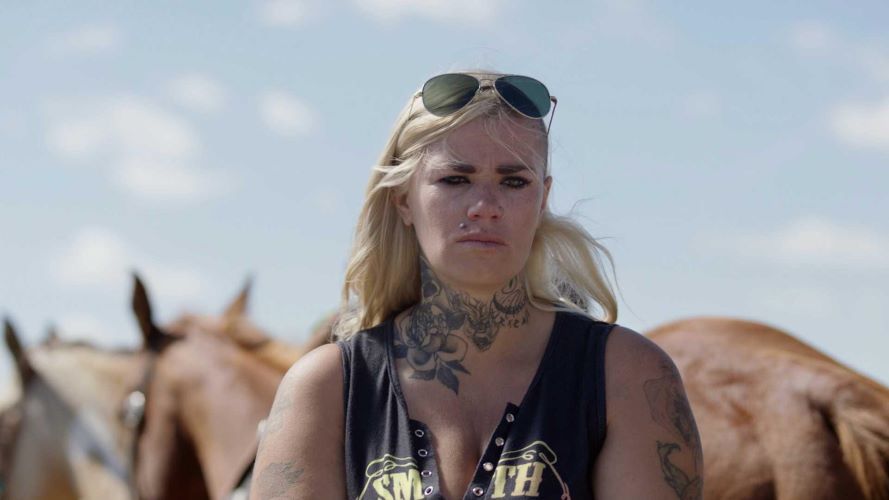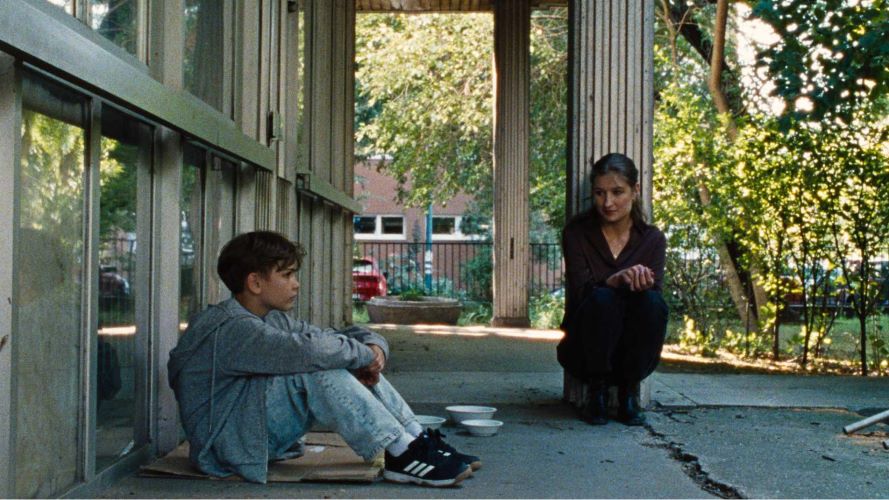
East of Wall
Captivating scenes of horses running free, agile riders, and the beauty of the South Dakota Badlands are among the many pleasures of Kate Beecroft’s debut feature East of Wall. It’s a cowgirl/rodeo film unlike any other, perhaps because it is so firmly grounded in human life. Tabatha Zimiga portrays rancher Tabatha Zimiga, and her rodeo star daughter Porshia Zimiga plays her daughter. They are portraying characters who are similar to themselves, but it’s not a documentary. Selling horses for a living by making TikTok videos to attract customers, Tabatha is a widow with two teenagers, including Porshia, from her ex-husband, and a three-year-old son Stetson from her second husband John, who died a year earlier. Getting by is hard but it doesn’t stop Tabatha from taking in teenagers in need, who become part of the family, riding, and pitching in on chores.
Watching Tabatha’s mother Tracey (Jennifer Ehle) care – I use that word hesitantly – for young Stetson, smoking and drinking beer while the toddler sucks on a candy and watches some kind of horror film on television, it seems like this is a family just half a step from disaster. And although financial crisis looms over them like a constant shadow, there is something about these characters and their connection that simply works. Visually, Tabatha is impressive with her long blond hair shaved on one side and her array of tattoos. Seeing her calm and gentle way with the horses is mesmerizing. Porshia is a star, both on and off a horse. Much of the film is seen from her perspective as she narrates. The film was chosen Audience Favorite at Sundance, and it’s easy to see why. We see these characters in their splendor and their weakness, their strength and their vulnerability, and we care about them, we want them to prevail and thrive.

Lesson Learned
Bálint Szimler’s Lesson Learned follows two newcomers to a school in Hungary, exposing the rigidity and cruelty of an authoritarian, oppressive system. Juci (Anna Mészöly) is a new teacher, eager to engage her students and open their minds. Ten-year-old Palkó (Paul Màtis) has just moved back to Hungary after years in Berlin. Naturally sad to leave what is perhaps the only home he remembers, he is also unaccustomed to the more conservative traditions of his new school, where teachers expect the students to stand to meet them when they enter the class. School-wide assemblies where nationalistic songs are sung are also new to Palkó. On the school’s part, it appears that students fainting during the ceremony is a common occurrence, and they are simply carried aside to the shade. Any deviation from the expected behavior or performance results in consequences for the bewildered Palkó. In this system, students are assigned a classmate to monitor and log their “black points.” Juci is brought in as a substitute teacher for Palkó’s class and tries to encourage a conversation but doesn’t get much farther than having the students declare “we hate literature!”
The film is very lively, sparked with humor, and shines with the brightness of children being children, despite the system’s rigidity.





